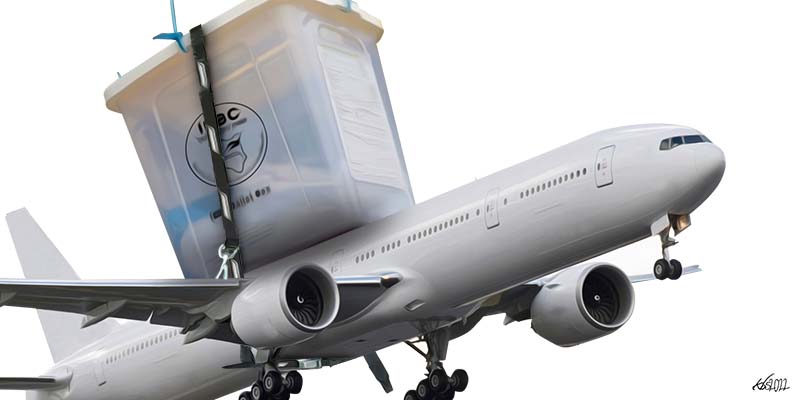In December 2021, Independent Electoral and Boundaries Commission Chairman Wafula Chebukati announced the Commission’s plans for mass voter registration in the diaspora. According to the IEBC boss, Kenyans living in the United Kingdom, Canada, the United States of America, South Sudan, Qatar, United Arab Emirates and Germany will have an opportunity to participate in the 9 August 2022 polls. The new centres were in addition to East African Community countries (Tanzania, Uganda, Burundi, and Rwanda) and South Africa, where Kenyans were able to cast their votes in the 2017 general election.
Regulation 34(2) of the Elections (Registration of Voters) Regulations 2012 provides that: “A decision by the Commission to register Kenyan citizens residing outside Kenya or to conduct elections outside Kenya shall be based on the presence of [a] Kenyan Embassy, High Commission or Consulate.” The IEBC was to undertake a 15-day voter registration exercise for the diaspora from 21 January to 6 February 2022.
Chebukati said that additional Biometric Voter Registration (BVR) kits would be made available in countries with multiple registration centres (US, Canada, UAE and Tanzania). A BVR kit was also to be installed in the Huduma Centre at the General Post Office in downtown Nairobi for the registration of Kenyans who would have travelled to Kenya during the registration period.
Voter registration did not kick off on schedule.
In a statement dated 21 January, the Commission gave COVID-19 travel restrictions and logistical challenges as the reasons behind the failure to begin the registration. “The commission regrets the delay in rolling out the voter registration exercise in the affected countries and is closely working with the relevant authorities to ensure it kicks off,” the statement said. The Commission said that the period of registration would be prolonged to compensate for the time lost.
Registration in London started on 24 January, on 1 February in Ottawa, Vancouver and Toronto and on 31 January in the UAE.
By February 6, the IEBC had enrolled only 2,959 new voters in 12 countries: Uganda, Tanzania, Rwanda, Burundi, South Africa, South Sudan, the US, the UK, UAE, Qatar, Germany and Canada.
The failure to start registering Kenyans in the diaspora on time, and the low numbers registered, is indicative of the mess that has been the bid to ensure that Kenyans in the diaspora can vote.
After years of lobbying for their right to dual citizenship and the right to participate in Kenyan elections in their countries of residence, the Constitution of Kenya 2010 extended voting rights to at least three million Kenyans living abroad. However, only about 4,000 Kenyans in the diaspora were able to vote in the 2013 and 2017 presidential elections (in its communication on voter registration in the diaspora, the IEBC has stated that Kenyans living abroad can only participate in presidential elections and referendums).
Section 109 (1) (a) and (b) of the Elections Act gives the IEBC the power to make regulations to prescribe the manner in which registers of voters shall be compiled, the manner in which they shall be revised and the procedure for the progressive registration of Kenyans living abroad.
Article 82 (1) provides that Parliament shall enact a law that shall provide for “the progressive registration of citizens residing outside Kenya, and the progressive realisation of their right to vote”. Further, Article 83 (3) provides that “administrative arrangements for the registration of voters and the conduct of elections shall be designed to facilitate, and shall not deny, an eligible citizen the right to vote or stand for election”.
The Kenyan diaspora does not think the IEBC has complied with the constitution. With their billions of shillings in remittances, Kenyans living abroad rightfully argue they should participate in the election of the country’s leadership and have felt cheated ever since only a very small minority were allowed to participate in the 2013 and 2017 elections.
In November 2012, the government had announced that the diaspora would not be able to vote because of “logistical and financial constraints”. Then Justice and Constitutional Affairs Minister Eugene Wamalwa told Parliament at the time that voting outside of Kenya was “not practical” as the electoral commission was already facing challenges in enrolling voters at home.
With their billions of shillings in remittances, Kenyans living abroad rightfully argue they should participate in the election of the country’s leadership.
“Kenyans in the Diaspora will not vote in the 2013 elections. It is not practical to have them take part now. I am appealing to those who can come home to register to do so,” Wamalwa said, adding that the matter had been discussed at cabinet level.
Martha Karua, who had resigned as Justice Minister, accused the cabinet of interfering with the independence of the IEBC, which she said had set aside 47 BVR kits to register Kenyans living abroad.
Angered by the decision, Kenyans living abroad moved to court, calling Wamalwa’s pronouncement illegal, ill-conceived and ill-timed. However, High Court Judge David Majanja ruled that although the right to vote is guaranteed constitutionally, it is not absolute and cannot be realised instantaneously but only progressively.
At the centre of the issue is also the actual number of Kenyans living abroad. At the time, Wamalwa said that only 152,000 Kenyans were registered with Kenyan missions abroad, adding that the three million figure was an exaggeration; the ministry of Foreign Affairs put the number at 700,000.
Agnes Gitau, who lives in the UK and is the Kenya Diaspora Alliance representative for London, said the process was flawed and would exclude many people due to logistics, and the short registration period of 15 days. “There has also been confusion on required documents. We believe it’s a deliberate attempt to exclude many,” Gitau said.
The IEBC chairman had said Kenyans abroad must “produce evidence of citizenship which is a valid Kenyan passport”, yet Kenyans residing in the other countries of the East African Community could use their identity card as proof of citizenship.
However, following a High Court decision, in a memo to registering missions the Commission announced that Kenyans in the diaspora could register as voters using either an Identity card or a valid passport. In the memo dated February 1, acting CEO Marjan Hussein said the directive was issued on 31 January pending determination of a petition filed by Okiya Omtatah against the IEBC and the Attorney General.
Omtatah had challenged the provisions of the Elections (Registration of Voters) Regulations, (2012), particularly Regulation No.37, which prohibit the use of national identity cards to register citizens in the diaspora as voters.
On 20 January, the Kenya Diaspora Alliance (KDA) released a statement in which it welcomed the IEBC’s decision to add eight more countries to the list of countries where the Kenyan diaspora could vote but also raised various concerns about the registration process. The lobby group, which said it represents 46 Kenya diaspora organisations, took issue with the 15 days allocated to the registration exercise. Kenyans within the country were given three weeks to register but, beyond that deadline, IEBC offices remain open for continuous registration until February 28. This option is not available to Kenyans in the diaspora.
“This discrepancy in the time limits seems to deny the Kenyans in the diaspora a fair opportunity to register in their numbers by having less time to register,” KDA said in the statement. The KDA also raised concerns regarding the vast areas—spanning countries and continents—covered by the missions that act as voting centres.
“This means that the Kenyans who wish to vote must travel over long distances and often expensively to register as voters. The Kenyan Embassies and High Commissions earmarked as registration centres are inadequate and logistically challenging for Kenyans who have to travel far and wide to register. That in itself negates the spirit and objective of the exercise,” KDA said. The KDA also does not think that Kenyans in the diaspora have been adequately consulted and involved in the process. “There also seems to be a selective partnership and collaboration between IEBC and some Kenyan diaspora organizations in supporting the exercise.”
Consequently the KDA has, among other things, demanded that more registration and voting stations be provided in order to improve access. It has also demanded that the use of technology, including registration through e-Citizen and other suitable online platforms, be explored. The Alliance has also called for more time (six weeks) for registration and that the IEBC consults with the organisation and with other credible diaspora groups so that the right to vote is enjoyed by all Kenyans living abroad.
In a letter to Chebukati dated 27 September 2021, the Kenya Qatar Diaspora Sacco took issue with the low number of diaspora voters.
“Despite the political engagement of the diaspora, intensive government outreach to emigrants, and high-stakes electoral competition, fewer than 3,000 Kenyans were permitted to vote from abroad in the year 2013 and 2017 presidential elections,” said Engineer Maxwell Odhiambo, chairman of the Kenya Qatar Diaspora Sacco Ltd. and KDA representative in Qatar. He said that the registration of Kenyans in the diaspora requires a strategic and organised approach, with the IEBC, the embassy and the local diaspora organizations working together.
Diaspora voting in Africa
African countries whose constitutions provide for diaspora voting include Algeria, Angola, Benin, Botswana, Cape Verde, Central African Republic, Chad, Côte d’Ivoire, Djibouti, Equatorial Guinea, Gabon, Ghana, Guinea, Guinea-Bissau, Lesotho, Mali, Mauritius, Mozambique, Namibia, Niger, Rwanda, São Tomé and Principe, Senegal, South Africa, Sudan, Togo, Tunisia and Zimbabwe.
Despite this provision, however, many of these countries have yet to make the diaspora vote a reality. This, according to Voting from Abroad: The International IDEA Handbook is due to lack of the political, legislative, financial or administrative agreements necessary for the regulation and organisation of the diaspora vote.
South Africa
When South Africa became a democracy following the end of apartheid, citizens in the diaspora were able to participate in the watershed 1994 election. However, diaspora voting was abolished soon thereafter until its reinstatement following a 2009 ruling of the Constitutional Court.
In Diaspora Voting in South Africa: Perceptions, Partisanship and Policy Reversal, Elizabeth Iams Wellman observes that the details of the South African case reveal an intensely partisan divide over the inclusion of South Africans abroad.
“Perceptions of the diaspora by the major political parties shaped both policy provision and implementation. With its two policy reversals, the case of South Africa also suggests a number of broader theoretical implications, including the critical variable of how diaspora voting becomes law, as well as the centrality of the political party as a key locus of analysis,” Wellman writes.
Wellman notes that nearly 100,000 South Africans voted in 78 countries in the 1994 election. However, the ANC government went on to ban external voting in 1998, effectively denying “the estimated 1-2 million South Africans living outside of the country” the right to vote. The ban was triggered by a dispute over the registration of voters for the 1999 elections.
Moreover, voter turnout in the 1994 elections was also much lower than anticipated and the electoral commission said it did not make a lot of logistical sense to send teams to register South Africans in the diaspora.
The registration of Kenyans in the diaspora requires a strategic and organised approach, with the IEBC, the embassy and the local diaspora organizations working together.
“Everybody saw 100,000 [votes] which probably was divided among 10 or 13 parties to a greater or lesser extent, and that 5,000 or 10,000 more or less wouldn’t make a difference”.
The IEC had argued that the 1994 decision was to give those who had left the country temporarily the opportunity to vote, questioning why those who had left the country permanently would you still want to vote.
In 2009, however, the Constitutional Court forced the government to reinstate the diaspora vote—all South Africans living abroad could once again participate in national elections. Wellman argues that in South Africa’s case, emigrant enfranchisement—or their exclusion from electoral politics—depends on the ruling party’s perception of the diaspora.
And unlike Kenya’s case where diaspora voting is enshrined in the constitution and other electoral laws and regulations, external balloting in South Africa was reintroduced through the courts and not through legislation. There is thus not much political goodwill to implement it.
For its part, the IEBC has cited logistical and financial challenges in rolling out the diaspora registration. To be sure, diaspora voting is disproportionately expensive while political parties have limited resources; mobilizing potential supporters around the world is far more costly than campaigning back at home. There is therefore no incentive to push for the diaspora vote.
“Uncertainty over the diaspora population and their political leanings (or political interest) suggests that positions on diaspora voting may be driven more by perceptions than accurate information,” Willman writes.
Angola
Angolans living abroad are likely to vote for the first time this year. In September last year, Marcy Lopes, the Minister of Territory Administration, said registration of diaspora voters would start in January 2022. The exercise will last three months.
The Institute of Angolan Communities Abroad estimates that at least 400,000 Angolans live abroad, 47 per cent in Africa, 24 per cent in Portugal and a substantial number in France.
The move to have Angolans abroad vote is part of the constitutional changes proposed by President João Lourenço to the National Assembly. The Constitutional Law of 1992 provided for the diaspora vote but lack of logistical capacity to undertake voter registration abroad has meant that Angolans living abroad have not enjoyed the right.
Angola’s missions abroad started registering citizens on January 17. Angola’s Ambassador to Portugal, Carlos Alberto Paz Fonseca, estimates that about 30,000 nationals who have attained the voting age will register.
The United States
America’s system appears well organized. US citizens resident abroad are eligible to vote in all presidential and congressional elections.
According to American Citizens Abroad, in order to register as a voter a US citizen only needs to visit www.fvap.gov and follow the procedure. However, unlike for African countries for instance, where embassies act as polling stations, this is not the case for the US. This is because embassies are federal entities, whereas it is the states, rather than the federal government, that run elections.
According to Richard Johnson, there are 5.5 million American citizens, including military personnel, living abroad. If Americans abroad were a state, they would be the 23rd largest.
External balloting in South Africa was reintroduced through the courts and not through legislation.
“About 3 million of these Americans abroad can vote — the rest are children. The countries with the highest numbers of adult Americans are Canada (622,000), the UK (329,000), Mexico (201,000), France (169,000), and Japan (125,000). London is the largest ‘American’ city in the world outside of the US, with more than 100,000 Americans living in or around the capital,” the lecturer in US Politics and Policy at Queen Mary University of London, writes.
Johnson notes that in 2009 the US passed the National Defence Authorization Act that requires states to offer overseas voters the option to return their ballot electronically. In practice, this means voters can email or even fax their ballots back to their county superintendent of elections, Johnson explains.
The steps the IEBC has taken since 2017 — including the increase in the number of foreign countries where Kenyans can register to vote — point to an agency committed to having the Kenyan diaspora participate in presidential elections. But this is not enough.
The IEBC should prepare early enough to have as many Kenyans abroad register. The Commission, for instance, should have election attachés in embassies abroad to facilitate continuous registration of Kenyans as voters. Should this option prove expensive, the IEBC could explore with the embassies how best to ensure the continuous registration of voters.
But the easiest solution would be to adopt the use of technology. As the Kenya Diaspora Alliance has recommended, the IEBC needs to explore registration through e-Citizen and other acceptable online registration platforms as this option would address the IEBC’s logistical challenges and be convenient for Kenyan voters wherever in the world they may be.
It would, in fact, offer an opportunity to test e-voting for future use domestically.







